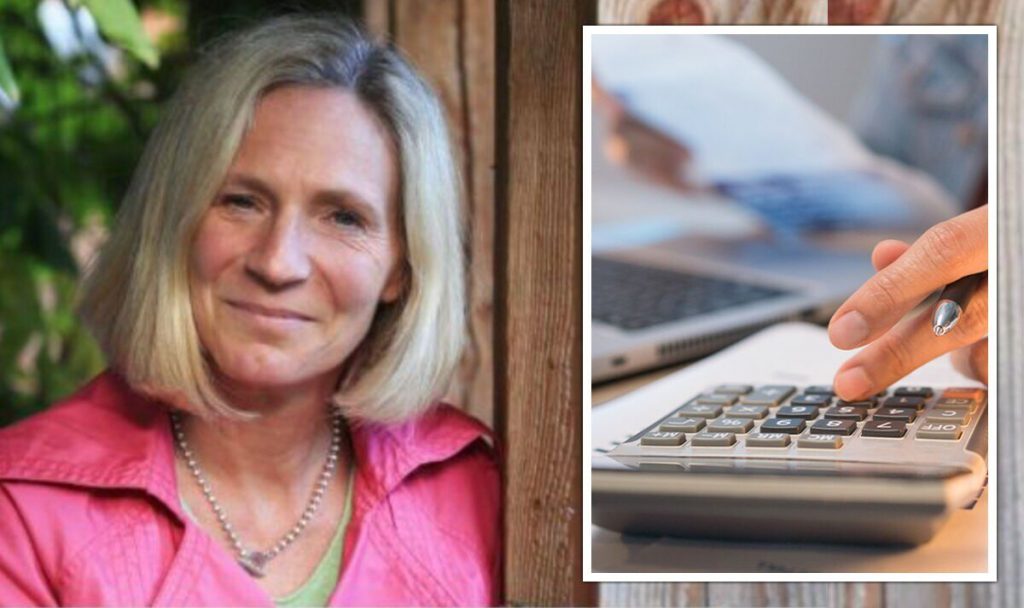
Recent government statistics have uncovered that divorce rates in the UK have increased by 22 percent compared to 2021, representing the highest number of applications in a decade. Discussing her journey exclusively with Express.co.uk, Viv Onslow, 55 explained how her circumstances have changed dramatically, moving from a six-bedroom detached home to a smaller three-bedroom semi-detached property, where she is living alone.
She said: “This recession feels different to others I’ve experienced. On one hand, I don’t have as many responsibilities as I did in 2008, my children are now grown up and living independently.
“However, I do feel worried, especially as my daughter has just been made redundant and I don’t have another adult to rely on should my financial circumstances change.
“Moving from a dual income household to a solo home has had its challenges and as I look ahead to April next year and the predictions of fuel bills hitting £3,702 for the average household, I can’t help but feel uneasy.”
Ms Onslow is doing all she can to support her community by donating board games and blankets to the local food bank, however she still has to think twice about putting the heating on just to cut costs. She is wrapping up as much as possible.
READ MORE: DWP confirms New Year Payment dates for Universal Credit, state pension and PIP
In a bid to be proactive and protect her finances, she has implemented “small changes that are making a big difference”.
She continued: “I have switched supermarkets and now tend to go to Lidl or Aldi – the food is just as good and significantly cheaper.
“Own branded, tinned, and frozen foods are a staple at mealtimes, they’re more cost effective and taste just as good whilst still being full of nutrients. I would estimate that this change has saved me on average £10 per week – money that I am saving for a rainy day.
“This change is one that my children have also adopted as they look to try and manage their spending this winter.
DON’T MISS
“Additionally, I have been shopping around when it comes to items like my home and car insurance. Comparing prices have shown me that there’s often a better deal and the money you can save for a bit of time online is well worth it.
“I recently saved £50 on my home insurance thanks to switching provider via MoneySuperMarket. The site was really simple to use and made the process clear – I was easily able to see what each policy included and choose a package to suit my budget.”
This Christmas, Ms Onslow discussed with family and friends about gift giving as purses are squeezed this year. Her family mutually agreed to cut back on the items they bought for each other, and they did Secret Santa instead.
Ms Onslow added: “In previous recessions my worries were always focussed on ensuring that my children were clothed and fed, it didn’t matter about me, and as a dual income household that mentality was easier.
READ MORE: State pension warning: Free bus pass age set to rise – when will you get yours?
“These feelings haven’t changed, I am more concerned about my children (who are now in their early twenties) than I am myself, however this time it is frustrating as I am not able to support them financially.”
She encouraged all Britons to discuss their financial worries with their friends and family, as the saying goes “a problem shared is a problem halved”.
As the cost-of-living crisis continues, price comparison site MoneySuperMarket is committed to helping households across the UK find savings across a wide range of bills.
MoneySuperMarket customers have saved nearly £500m on insurance, credit cards, loans, mobiles and broadband since the launch of Mission £1billion in May.
Switching off the lights and turning down the heating has become a habit, with two-thirds of Britons using less gas and electricity in an effort to reduce their living costs, according to the Office for National Statistics.
In a bid to cut cost every household in England, Scotland and Wales is eligible for the energy bills support scheme, which is part of the Government’s cost of living package.
It is worth £400 in total, with the discount applied to your household electricity bill in six instalments over the winter months.
If people have not received the discount, they are encouraged to contact their energy supplier.
People who receive a range of benefits, including Pension Credit, income support, and support with mortgage interest, may also be eligible for Cold Weather Payments.
Under this scheme, the Government will make a payment of £25 to those eligible for each period of seven days, between November 1 and March 31, in which the temperature drops to below zero degrees (or is forecast to do so).

 Latest Breaking News Online News Portal
Latest Breaking News Online News Portal




